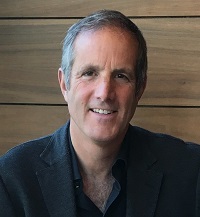Greetings from CPIP Executive Director Sean O’Connor

I hope you had an enjoyable, restful Thanksgiving. At CPIP, we’re winding down 2020 while planning our spring and summer events—including biopharma and copyright roundtables, the 2021 WIPO-CPIP Summer School on Intellectual Property, and more.
As usual, our team has been up to many great things. Director of Copyright Research and Policy Sandra Aistars’ Arts & Entertainment Advocacy Clinic co-hosted a virtual clinic with Washington Area Lawyers for the Arts (WALA). The event was a huge success. You can read our write-up here, and a recording of the Rock Creek Kings’ featured performance is available here. Sandra also participated in a November 12 panel hosted by the Law of Intellectual Property (LIP) student organization at the University of Oregon School of Law (home to CPIP Senior Scholar Eric Priest).
I taught my annual workshop on “Public-Private Partnerships–Innovation and Technology Transfer” in the CEIPI-WIPO-INPI Advanced Training Course on Intellectual Property, Technology Transfer and Licensing. I also published an op-ed at The Hill on price controls, explaining why the government cannot seize or bypass pharmaceutical patents.
Our affiliates have also been doing great things as well. Scalia Law Alumna and Arts & Entertainment Advocacy Clinic Adjunct Professor Terrica Carrington and Lateef Mtima of Howard University School of Law and IIPSJ have great quotes in this Billboard article on choreography, copyright, and social justice. CPIP Senior Fellow for Innovation Policy Jonathan Barnett continues to blog at Truth on the Market; you can catch his latest piece here and read his take on how antitrust law can be abused to promote unproductive rent-seeking. Meanwhile Chris Holman, CPIP Senior Fellow for Life Sciences, continues writing for the Biotechnology Law Report, where he serves as Executive Director; his latest article is available here.
Below we highlight new papers from CPIP Edison Fellows Christa Laser (Equitable Defenses in Patent Law), Talha Syed (Owning Knowledge: A Unified Theory of Patent Eligibility), and Tabrez Ebrahim (Artificial Intelligence Inventions & Patent Disclosure).
While 2020’s end-of-year holiday season may well be challenging, I hope you and yours will find a way to share the spirit and renewal of this coming season while looking forward to a successful new year!
Spotlight on Scholarship

The scholars from our Thomas Edison Innovation Fellowship program continue to publish high quality scholarship and cutting-edge research that promotes the value of intellectual property. Here are some recent publications:
Tabrez Y. Ebrahim, Artificial Intelligence Inventions & Patent Disclosure, 125 Penn. St. L. Rev. 147 (2020)
In his new paper at Penn State Law Review, Artificial Intelligence Inventions & Patent Disclosure, Professor Tabrez Ebrahim of California Western School of Law claims that AI fundamentally challenges disclosure in patent law, which has not kept up with rapid advancements in AI, and seeks to invigorate the goals that patent law’s disclosure function is thought to serve for society. In so doing, Prof. Ebrahim assesses the role that AI plays in the inventive process, how AI can produce AI-generated output (that can be claimed in a patent application), and why it should matter for patent policy and for society. He also introduces a taxonomy comprising AI-based tools and AI-generated output that he maps with social-policy-related considerations, theoretical justifications and normative reasoning concerning disclosure for the use of AI in the inventive process, and proposals for enhancing disclosure and the impact on patent protection and trade secrecy.
To read our blog post summarizing the paper, please click here.
Christa J. Laser, Equitable Defenses in Patent Law, 75 U. Miami L. Rev. 1 (2020)
In patent law, equitable defenses can play an essential role in multi-million-dollar patent infringement cases. Unclean hands, misuse, or estoppel can render a potential verdict unenforceable. Professor Christa Laser of Cleveland-Marshall College of Law dives into the unique and unsettled role of equity in her new paper, Equitable Defenses in Patent Law, which is forthcoming at the University of Miami Law Review. Prof. Laser compares two theories to determine how courts might interpret undefined language governing equitable defenses in patent statutes, and she analyzes whether Congress codified preexisting decisional law or expanded it with the 1952 Patent Act. Finally, Prof. Laser suggests that Congress could delegate its authority to an agency to handle the ever-changing patent landscape.
To read our blog post summarizing the paper, please click here.
Talha Syed, Owning Knowledge: A Unified Theory of Patent Eligibility (forthcoming)
In his new draft paper, Owning Knowledge: A Unified Theory of Patent Eligibility, Professor Talha Syed of Berkeley Law argues that the confusion surrounding patentable subject matter under Section 101 is two-fold. First, it results from our failure to develop a functionality doctrine that can clearly distinguish technological applications of knowledge from other forms of knowledge. Second, he offers a root cause of this failure. There is a distracting preoccupation in patent law with “physicalism,” that is, the notion that a patent is awarded for a thing (tangible or not) rather than for knowledge of that thing. In order to move forward, Prof. Syed states that we must first unwind the physicalist assumptions that are tangled up in our Section 101 analyses. Only then can we develop a functionality doctrine free of those encumbrances.
To read our blog post summarizing the paper, please click here.

